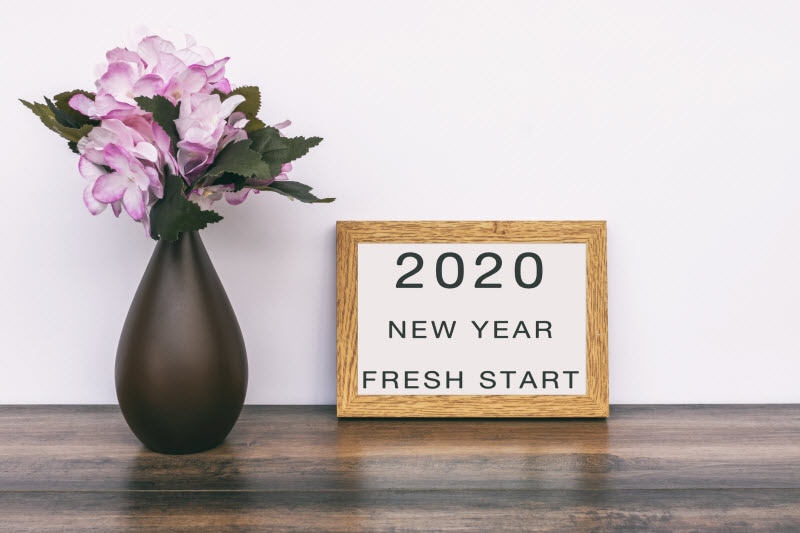With the end of the year approaching, it’s time to start thinking about New Year’s resolutions, which are generally tailored toward improving your health and wellness and reaching new fitness and nutrition heights.
Of course, that doesn’t mean it’s always about getting to a certain number of burpees a day or going on a Whole30 detox to lose weight—it can just be to make small but effective changes to start each day feeling happier, healthier and in a better state of mind and body to make life more worthwhile. Everyone will have different resolutions that are personal and emotional for them.
Yet, there is one common theme across all of these resolutions—the tendency to break them early on. Like, fast. I once had a resolution that lasted a week—trust me, I told everyone about it and then had to accept defeat in seven short days. Embarrassing.
However, you can improve your chances of sticking with resolutions by setting them properly and avoiding certain mistakes that can lead to their downfall. Here are a few to keep in mind when planning your resolutions this year.
Common New Year’s Resolutions Mistakes
1. Expecting results overnight
“Making real and lasting changes takes time, and it’s good to know that going in. Give yourself a realistic timeframe to achieve your goal,” says NYC-based Registered Dietitian, Natalie Rizzo, MS, RD. So, give yourself time to actually see some good results and don’t get too frustrated if you’re a week in and don’t see much effect yet.
“Instead of hoping to lose 10 pounds in a month, try 3 months. Instead of going from the couch to 5K in a week, try 2 months,” she says as an example. Be practical and if you don’t see what should be expected in a given period of time, consider re-working that resolution to better target it and gain legitimate results.
2. Doing it alone
Change is hard, and a support system can make it a little easier. So, recruit your friends, co-workers, partner, or family members if they’re on board! “Ask your spouse if they would be open to eating something healthier for dinner. Or find a friend who wants to work out with you,” she says.
You can also make some room in your budget to meet with a dietitian who can help you figure out a better way of eating, and perhaps a workout plan and lifestyle tips (or can recommend someone), to help tie it all together holistically. If you need help, ask for it and let others lift you up.
3. Being too broad in goal setting
One of the key elements of achieving a goal is to make it realistic and somewhat specific so you can create direct action steps and know what to look for.
“For instance, ‘losing weight’ is too broad, but ‘losing 5 pounds so I can comfortably fit into my jeans’ is specific. It gives you something to focus on and an outcome that you want to achieve,” she says. So narrow it down as best as possible—not where it’s too rigid where you might burn out or it isn’t practical for your schedule, but where it’s focused enough to spark real change.
4. Focusing on restriction
For diet related goals, don’t focus on the foods you cannot eat—a mindset around deprivation and restriction will make eating healthier seem like hard work and no fun. And you will likely give in quickly and grab a donut.
“Instead, think about the foods you want to eat more of, like vegetables,” she says. Instead of making a goal about “not eating X food ever again,” change it to “replacing X food with vegetables for one meal of the day.” This is easier to implement and focuses on introducing, rather than getting rid of.
5. Forgetting the goal
Jot that baby down in your journal or post it on your fridge as a friendly reminder. “People tend to set big New Year’s Resolutions and forget about them a week later. To be reminded of what you set out to do, write it down,” she says. “I like to journal to keep track of my goal, but you can also set daily calendar reminders to help you stay on track,” she says. Do what feels right for you and in a place where you’ll be able to see it daily.

